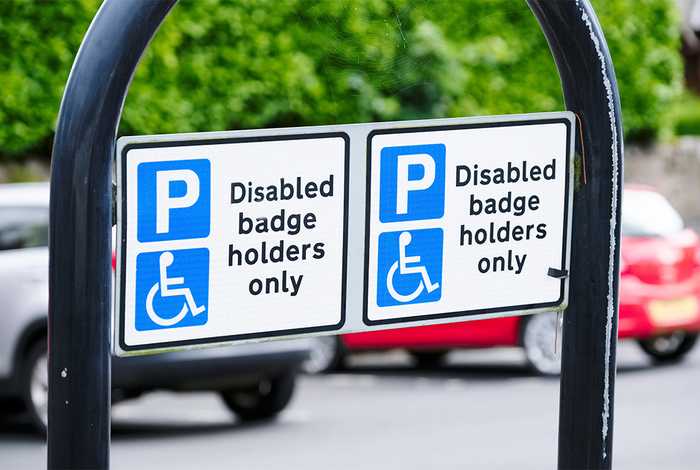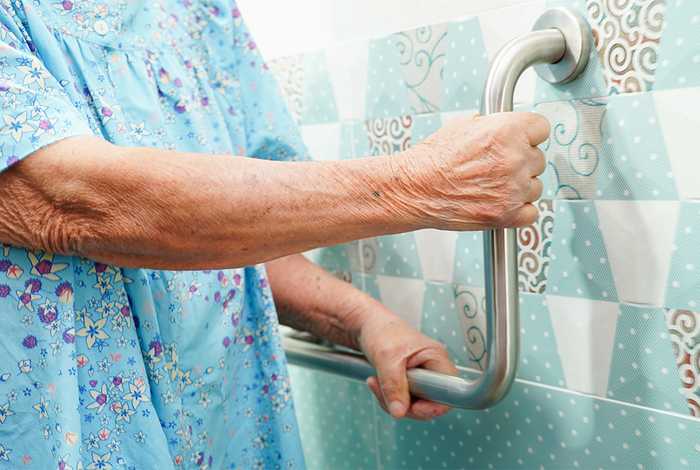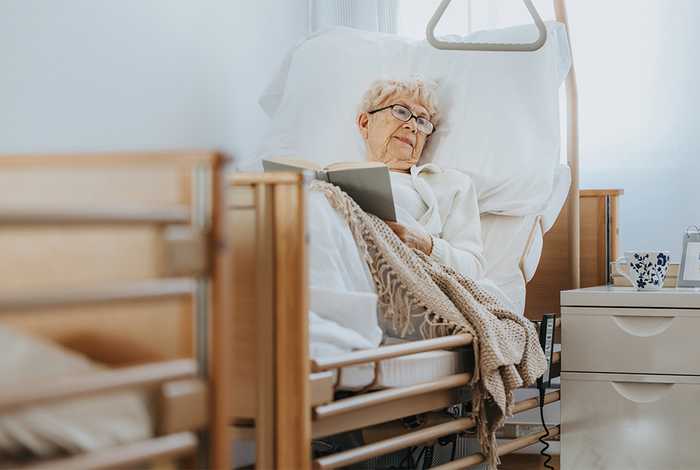Posted by Declan Davey
UK Covid update: Level 5 rules, support bubbles, and vaccine news...
How will the latest UK lockdown measures impact seniors and their families?
Keep up-to-date with five quick updates on the Covid situation in the UK:
1. “Level 5” explained and the number of UK Covid cases
The UK registered 68,053 new Covid cases and 1,325 Covid-related deaths on January 8 2021 -- exceeding the daily record.
A sharp rise in cases over the New Year has forced UK Chief Medical Officers to take the nation up to Covid Alert Level 5.
What does the highest level of Covid risk suggest?
The Joint Biosecurity Centre base their alert level recommendations on the Coronavirus reproduction (R) number. At level 5, UK healthcare services are significantly at risk of being overwhelmed. Even stricter lockdown measures must be followed by the public as a result.
Wondering how the latest restrictions may impact you and your family?
Frequent rule changes have left many confused. Read on to find out what activities are and aren’t allowed at the moment.
2. New UK Covid rules: What’s allowed?
England, Scotland, Wales, and Northern Ireland are following different Covid rules, so make sure to check the restrictions where you’re based.
Nonetheless, citizens of all four constituent countries are being urged to stay at home, except for limited purposes.
Here’s a summary of the level 5 restrictions that are currently in place in England:
Socialising: Restricted to households, childcare/carer bubbles, and legally-allowed support bubbles.
Work: Everyone must work from home, unless it is “unreasonable” to do so, e.g. critical workers.
Shopping: Supermarkets, garden centres, and medical suppliers are allowed to stay open. Non-essential retail must close.
Education: Primary and secondary schools to provide online teaching only, apart from education for vulnerable children. Universities must run online, except for courses that need face-to-face teaching. Nurseries are open.
Hospitality: Pubs and restaurants must shut by 11pm and offer takeaway services only.
Exercise: Limited to once a day, with up to one other person from another household (in an open space). Gyms are closed but playgrounds are open.
Religion: Communal worship locations are open, though visitors must remain in their household bubbles.
Ceremonies: Funerals and weddings with limited attendances are allowed.
Moving home: Activities related to buying/selling a property are allowed.
Holidays: Only allowed to travel within the UK or abroad with legal permission
3. “Support Bubbles” update
Support bubbles have been a feature of daily life for many seniors in 2020. The limits on social network connections look set to continue throughout the early part of 2021, at a minimum.
If you’re not sure who you can visit following the level 5 announcement, here are the updated Gov.uk guidelines:
4. Covid vaccination -- Where are you on the priority list?
Three Covid vaccines are being rolled out in the UK -- Oxford Uni-AstraZeneca, Pfizer-BioNTech, and Moderna.
But how high are you on the priority list for a jab?
Gov.uk has outlined nine priority groups for the vaccine -- as advised by the Joint Committee on Vaccination and Immunisation (JCVI).
The nine groups are made up of approximately 30 million people. In total, the groups are said to cover 99% of preventable mortality from COVID-19.
Here are the nine groups in order, with 1) representing the highest priority group:
- Older adult care home residents and their carers
- Frontline health/ social care workers, and 80 year-olds and over
- 75 year-olds and over
- 70 year-olds and over, and extremely vulnerable individuals
- 65 year-olds and over
- 16-64 year-olds with underlying health conditions (higher risk)
- 60 year-olds and over
- 55 year-olds and over
- 50 year-olds and over
5. How do the 3 caccines compare?
Hospital hubs and GP-run vaccination centres have started to offer Covid vaccines from the week beginning 4 January 2021.
The NHS has said that care home residents and staff, frontline health workers, and some people aged 80 and over are first in line to get a jab.
Each of the three UK Covid vaccines require two doses, injected into the upper arm. The second dose is provided 3-12 weeks after the first dose.
The vaccines have passed strict quality standards set out by the Medicines and Healthcare products Regulatory Agency (MHRA).
However, mild side effects are possible. These include tiredness, headaches, body aches, nausea, and a sore arm at the site of injection.
If you’re curious about what happens in the body following a jab, here’s a useful breakdown of how the Oxford vaccine works:
Need to Talk?
No doubt, this is a tough time -- perhaps the toughest yet since Covid emerged in the UK.
We hope you’re staying as safe as possible. If you’d like to speak with a Care Expert about arranging support for yourself or a loved one during the lockdown, call our Advice Line on 01892 335 330.
We’re available to speak from Monday to Sunday (8:30am - 5:30pm Mon-Fri, 10am - 5pm Sat, 10am - 4pm Sun).
Email is another option, too. You can reach out on:
Other articles to read
Autumna Blog

Older Persons Care Advice
Guide to applying for a blue badge as a carer
June 27th, 2025
Applying for a Blue Badge as a carer could ease daily struggles and restore independence. Discover who’s eligible, how to apply, and why it matters.

Older Persons Care Advice
Do you have to pay back a disabled facilities grant?
June 27th, 2025
Do you have to pay back a Disabled Facilities Grant? If you’ve ever asked this question and are unsure about how it works read our blog where to find out more.

Older Persons Care Advice
How Discharge to Assess Pathways Reduce Hospital Stays
June 25th, 2025
Discover how the discharge to assess pathways can help to reduce hospital stays, speed up recovery, and support a smoother move into ongoing care.






